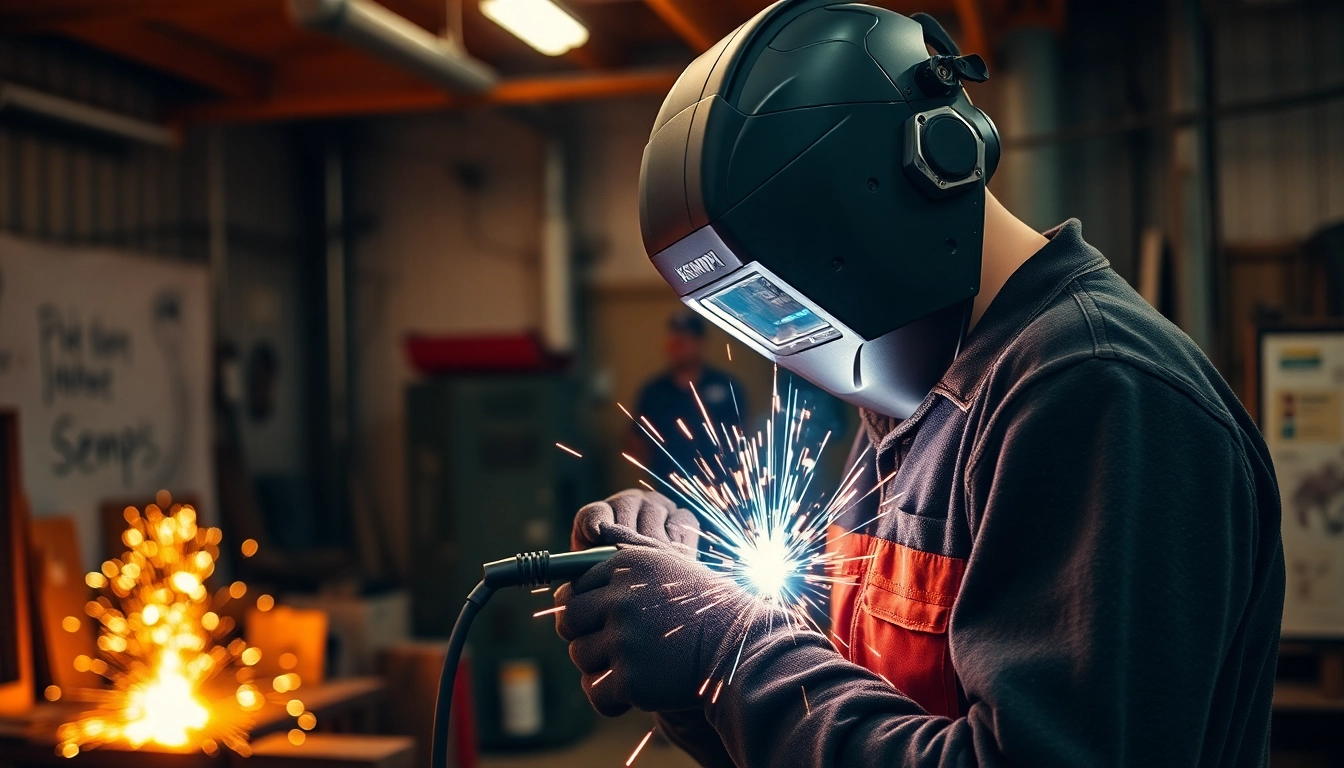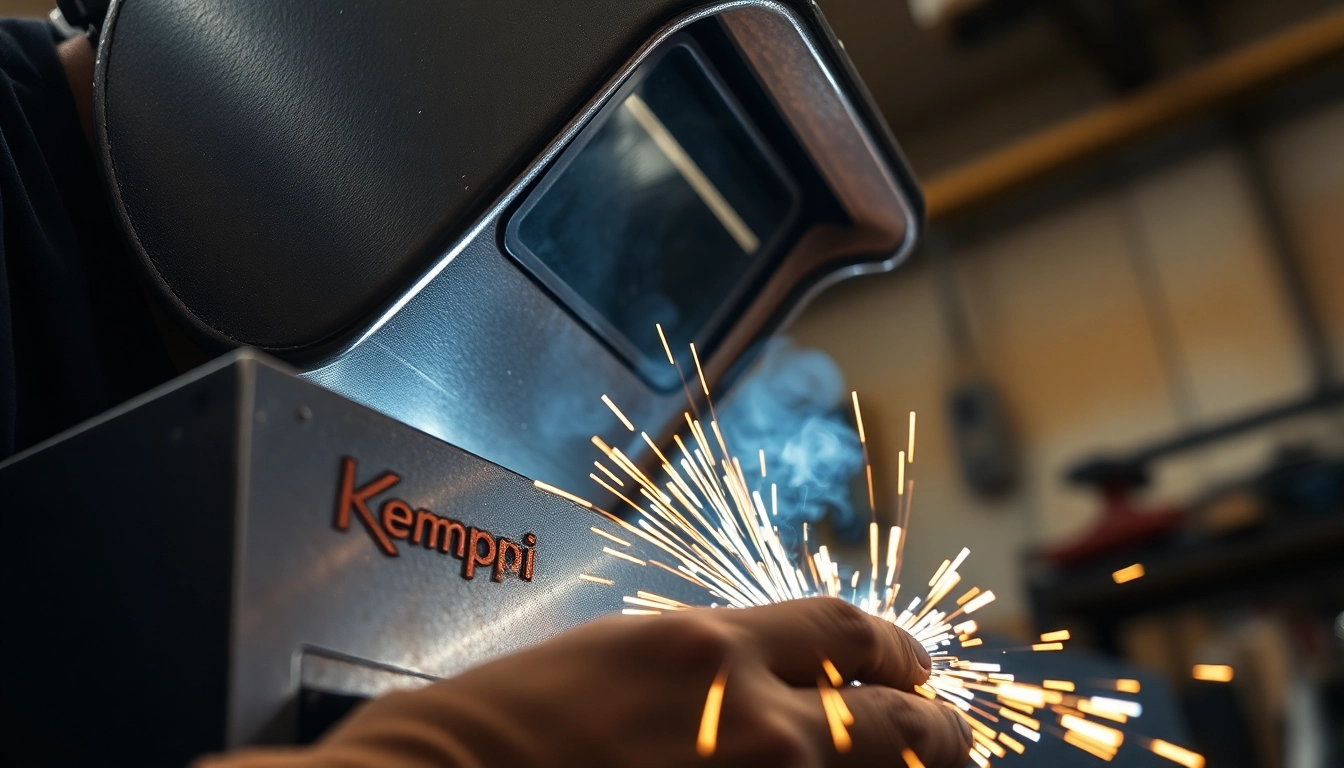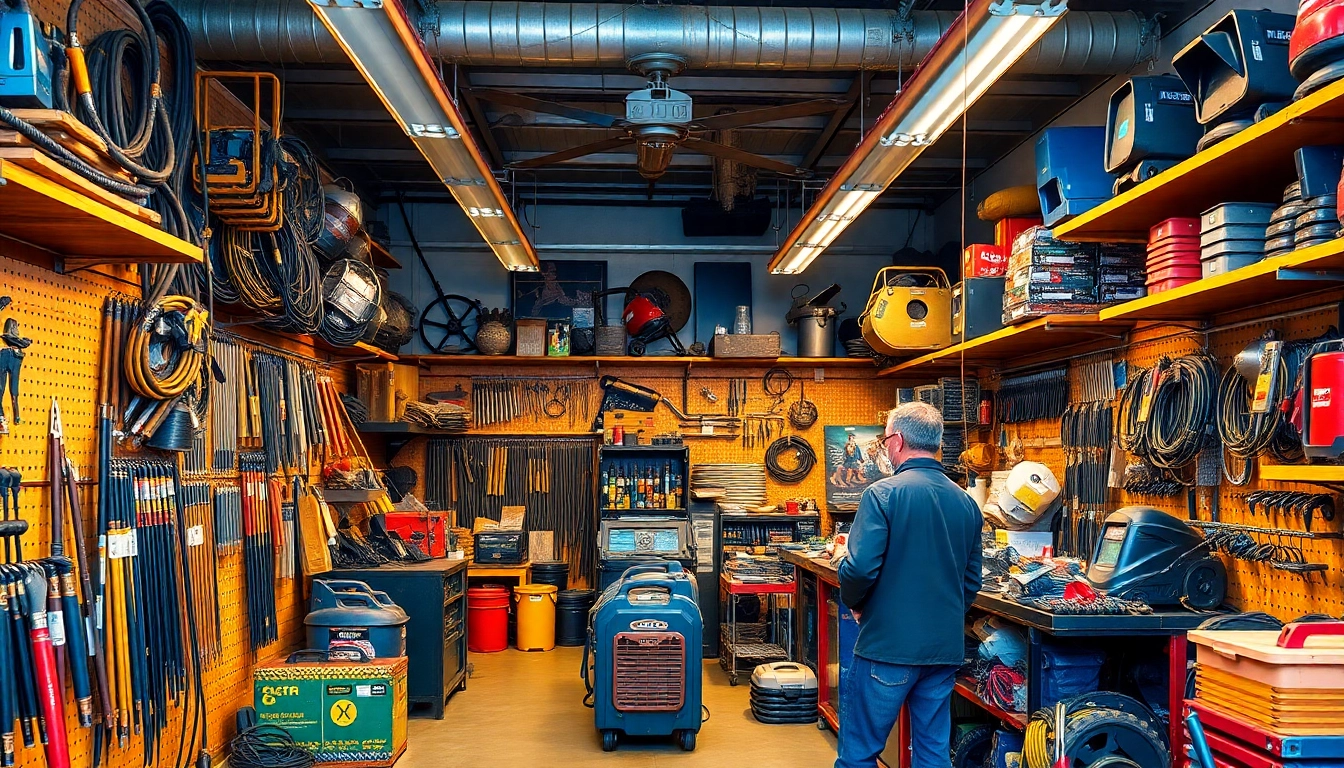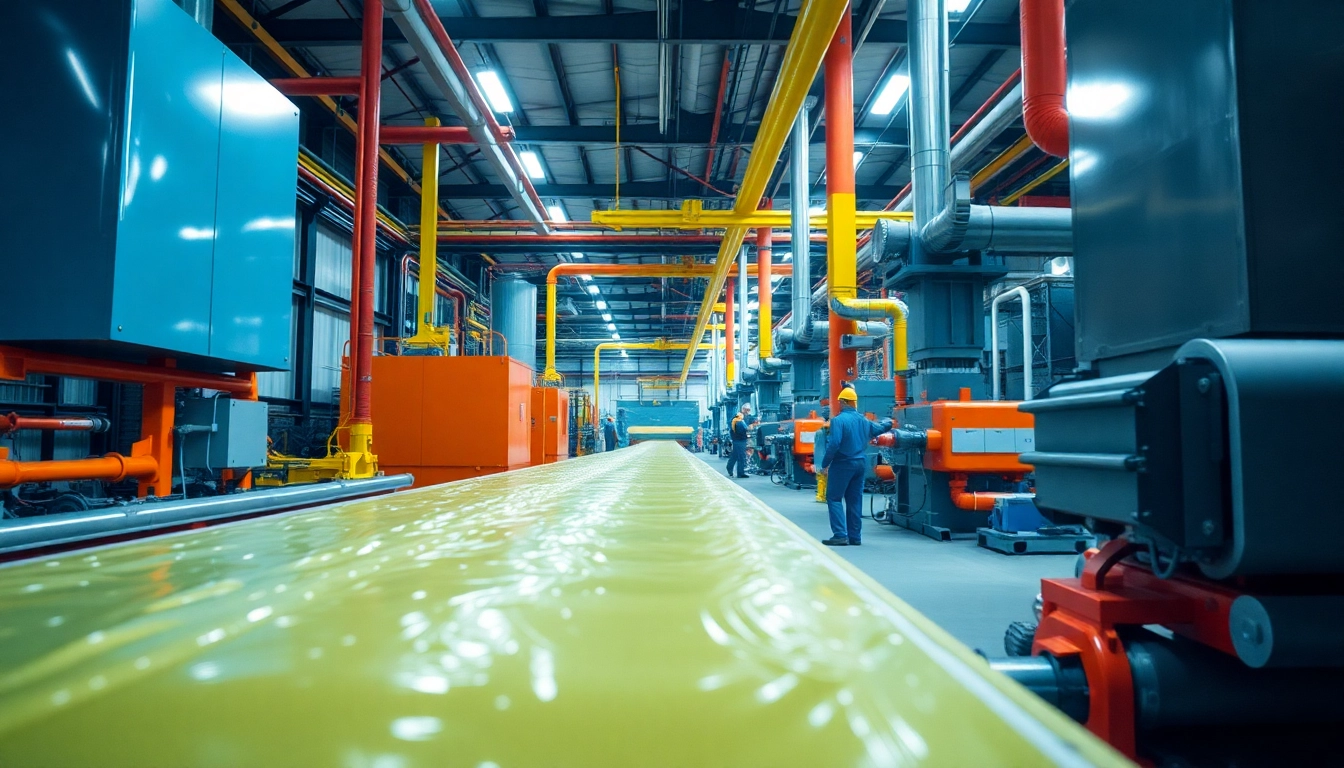Understanding Kemppi Welders: A Comprehensive Guide
Kemppi welders have gained a reputation for their innovation, precision, and superior quality in the welding industry. Founded in Finland, kemppi welders have been at the forefront of arc welding technology, offering a variety of solutions suitable for both industrial applications and personal projects. In this guide, we will delve into the core characteristics of Kemppi welding machines, explore the diverse types available, and evaluate their notable benefits across different applications.
What Are Kemppi Welders?
Kemppi welders are advanced arc welding machines that utilize different welding processes such as MIG, TIG, and MMA. Their design focuses on ensuring efficiency, quality, and user-friendliness. The machines are engineered to meet the rigorous demands of professional welders, featuring robust technology that enhances performance, reduces downtime, and improves the overall weld quality. Kemppi has built a legacy around durability and ease of use, making them a preferred choice for many industries.
Key Features of Kemppi Welding Equipment
What sets Kemppi welders apart? Let’s explore some of their distinguishing features:
- Advanced Control Systems: Kemppi welders are often equipped with sophisticated control systems that allow welders to fine-tune the welding parameters to suit specific materials and weld types, ensuring optimal performance.
- Portability: Many models are designed for portability without sacrificing performance, featuring compact designs that are easy to transport.
- Durability: Built to withstand harsh working conditions, Kemppi welders are constructed with high-quality components that ensure a long lifespan.
- User-Friendly Interfaces: The welders provide intuitive user interfaces that make operation simple, even for beginners. Digital displays and automatic settings help in achieving accuracy.
Types of Kemppi Welders: A Breakdown
Kemppi offers a wide range of welding machines. Each type caters to different welding processes and applications:
- MIG Welders: These machines are ideal for welding metals like steel and aluminum. They offer high speed and excellent arc stability, making them suitable for production environments.
- TIG Welders: Known for their precision, TIG welders are best used for thin materials and offer a higher quality weld. They require more skill but are favored in automotive and aerospace industries.
- MMA Welding Machines: Suitable for a variety of metal types, MMA machines are versatile and used extensively in heavy-duty constructions.
- Multi-process Welders: For those who require flexibility, Kemppi’s multi-process welders can handle MIG, TIG, and MMA welding, allowing users to switch processes seamlessly.
Benefits of Using Kemppi Welders in Various Applications
Kemppi welders offer distinct advantages that can be beneficial for various applications ranging from industrial manufacturing to DIY projects. Understanding these benefits is essential for making informed purchasing decisions.
Industrial Applications of Kemppi Welders
In industrial settings, where reliability and efficiency are critical, Kemppi welders excel in delivering high-quality workmanship. Industries such as construction, automotive, and manufacturing frequently employ these machines due to:
- High Productivity: With fast welding speeds and advanced features, Kemppi welders can handle high-volume projects with ease.
- Consistent Quality: The precision of Kemppi welders ensures that every weld meets industry standards, reducing the likelihood of rework.
- Flexibility: Multinational companies can utilize various welding processes with a single machine, optimizing their resources and workspace.
Advantages in DIY Projects
For DIY enthusiasts, Kemppi welders offer several benefits:
- User-Friendly Design: Many models are designed with the hobbyist in mind, featuring easy controls and operational guidance.
- Versatile Applications: From furniture repair to metal art projects, the versatility of Kemppi welders makes them suitable for a variety of materials and applications.
- Durability and Maintenance: With the right care, DIYers can count on their Kemppi welders for many years of reliable performance.
Cost-Effectiveness of Kemppi Welding Solutions
Investing in a Kemppi welder is often more cost-effective in the long run. Factors contributing to this include:
- Reduced Waste: The precision of these welders minimizes material waste, resulting in savings on raw materials.
- Energy Efficiency: Many models are designed to consume less power while maintaining performance, lowering energy costs.
- Longevity: Built to last, these machines typically require fewer replacements and repairs over time, diminishing overall costs.
Choosing the Right Kemppi Welder for Your Needs
Selecting the appropriate welder can significantly affect the quality of your work and project outcomes. Numerous factors must be taken into consideration.
Factors to Consider When Selecting a Welder
When choosing a Kemppi welder, consider the following aspects:
- Welding Process: Determine which welding processes you will be using most frequently (MIG, TIG, or Arc).
- Material Thickness: Evaluate the thickness of the materials you will be working with, as this can affect your choice of welder.
- Portability: If you need to transport your welder frequently, consider models designed for portability.
- Power Supply: Ensure compatibility with the power supply available to you, especially if you’re working in different locations.
Comparative Analysis of Popular Kemppi Models
Among the extensive range of Kemppi welders, a few models stand out due to their unique features and popularity:
- Kemppi Master M: Ideal for MIG/MAG welding, it boasts an efficient cooling system and impressive arc stability.
- Kemppi Minarc: A compact TIG welder, known for its lightweight construction—perfect for outdoor work.
- Kemppi FastMig: This model is optimized for high-performance MIG welding, suitable for both light and heavy applications.
– Detailed comparisons often reveal which model is suited for specific tasks or industries.
Understanding Customer Reviews and Experiences
When purchasing a welder, it’s essential to consider feedback from current users. They provide insights that can help make informed decisions. Reviewing platforms often feature discussions regarding:
- Performance: Many users highlight efficiency, ease of use, and the quality of welds achieved.
- Service and Support: Positive feedback on customer service can play a vital role in the purchasing decision for both individuals and businesses.
- Durability: Long-term users frequently share their satisfaction with the longevity and resilience of Kemppi machines.
Getting Started with Kemppi Welders: Tips and Best Practices
Once equipped with a Kemppi welder, it’s crucial to maximize its performance through best practices and proper setup. This section outlines essential tips for optimal results.
Essentials for Safe Welding Practices
Prioritizing safety is key when engaging in welding work. Here are important safety practices:
- Personal Protective Equipment (PPE): Always utilize quality PPE including gloves, helmets, and protective clothing to safeguard against hazards.
- Ventilation: Ensure adequate ventilation in your workspace to prevent inhalation of harmful fumes.
- Awareness: Be aware of your surroundings, equipment, and any potential fire risks.
Setting Up Your Workspace Effectively
A well-organized workspace contributes to productivity and safety. Tips for setting up include:
- Clear Work Area: Remove unnecessary materials and ensure your workspace is tidy.
- Lighting: Adequate lighting helps with precision and reduces the chance of mistakes.
- Tool Arrangement: Keep all tools within reach to minimize movement and distractions.
Maintenance Tips for Longevity of Your Kemppi Welder
Proper maintenance ensures that your Kemppi welder operates efficiently for many years. Here are some recommendations:
- Regular Cleaning: Keep the welder clean; dust and slag buildup can affect performance.
- Routine Inspections: Perform periodic checks on cables, connectors, and other parts to catch any wear early.
- Follow Manufacturer Guidelines: Adhere to specific maintenance instructions provided in the manual for maximizing lifespan.
Future Innovations in the Kemppi Welding Lineup
The welding industry is continuously evolving, with Kemppi at the forefront of innovations. Understanding future trends helps users remain competitive and informed.
Upcoming Technologies in Welding Equipment
Future developments in Kemppi welders are likely to include advancements in:
- Automation: With increasing demand for automation in manufacturing, expect to see integrated robotic solutions that enhance precision and reduce labor costs.
- Digital Integration: Next-generation welders are likely to feature smart technology for real-time monitoring and data analysis, boosting productivity and performance tracking.
- Energy Efficiency: Focus on reducing energy consumption will lead to the development of machines that consume less power while delivering superior performance.
Sustainable Practices in Modern Welding
As industries pivot towards sustainability, Kemppi is committed to reducing environmental impact through:
- Efficient Resource Usage: Designing machines that optimize metal usage minimizes waste and enhances affordability.
- Low Emission Technology: Innovations aimed at reducing welding fumes and increasing energy efficiency.
The Role of Automation in Kemppi Welders
Automation is transforming how welding is conducted, leading to increased productivity and quality assurance. Key roles include:
- Streamlining Workflow: Automated processes can reduce handling time and improve consistency in weld quality.
- Enhanced Safety: Automation reduces the exposure of workers to hazardous conditions, which is crucial in high-risk environments.



